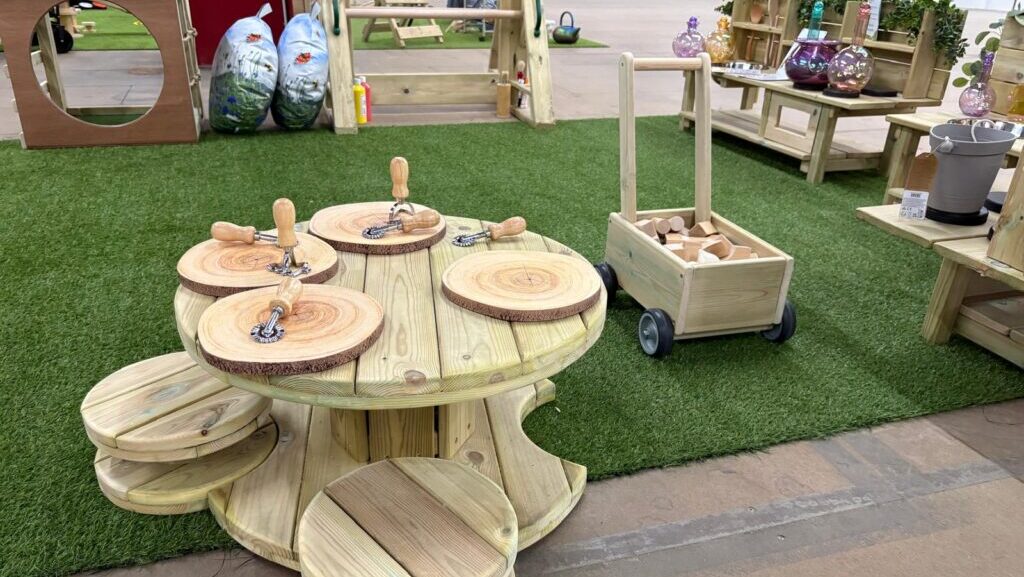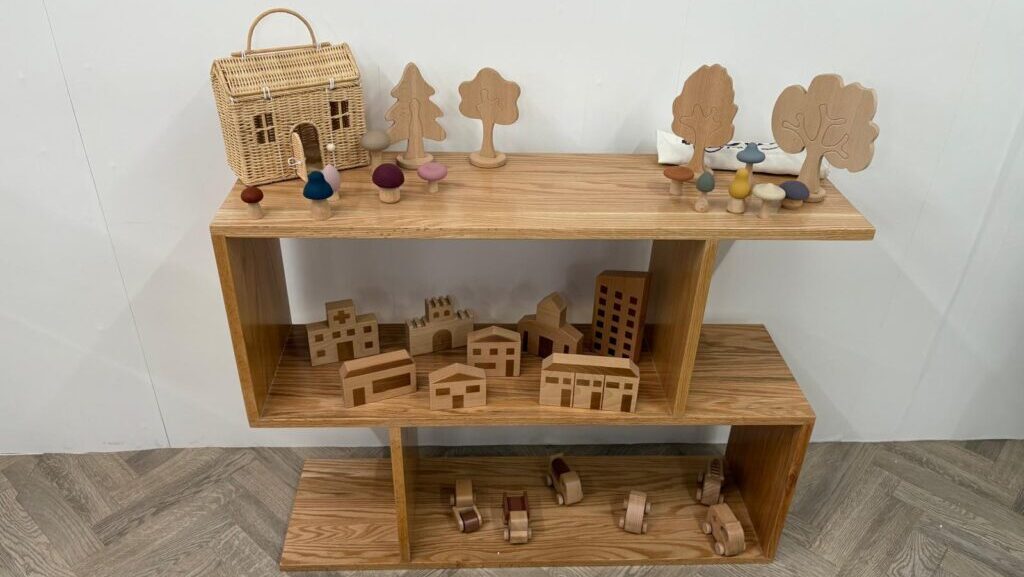We chat to outdoor play expert Claire from Creative Play, who shares how imaginative play can support early years development…
Sustainable action
As part of the government’s Sustainability and Climate Change Strategy education settings should have a climate action plan in place by 2025. Chris Leonard, environmental, social and governance manager at Findel, sets out what nurseries can do to source sustainable resources

Why is sustainability important when it comes to buying resources?
Sustainability is really important when selecting resources because it ensures that the choices we make today won’t negatively impact future generations. For educational resources, this means choosing materials that are ethically sourced, responsibly produced, and built to last.
At Findel, we understand the huge role early years education plays in shaping children’s attitudes towards the environment. By selecting sustainable resources, nurseries and schools can help reduce their carbon footprint, cut down on waste, and teach children about responsible consumption.
Sustainable purchasing also supports wider environmental, social and governance (ESG) goals, like reducing deforestation, lowering emissions, and promoting fair labour practices. It’s not just about meeting regulations – it’s about leading positive change.
What should nurseries think about when sourcing resources?
When it comes to sourcing resources, nurseries should aim to strike a balance between sustainability, durability, and educational value. Choosing products made from recycled or responsibly sourced materials, like Forest Stewardship Council (FSC)-certified wood or plastic-free options, helps reduce environmental impact and sets a great example for children.
Durability is just as important; investing in high-quality, long-lasting resources not only saves money but also cuts down on waste. Ethical sourcing is another key consideration to ensure products are made responsibly.
Finally, nurseries should always think about safety and packaging. Opting for non-toxic materials that meet UK/EU safety standards, along with reducing plastic packaging, not only protects children’s wellbeing but also supports a more sustainable future.

What are some ways in which your products are sustainable?
We’re always looking for ways to reduce our environmental impact and offering more eco-friendly alternatives is a key part of that. In fact, it’s one of our main sustainability performance targets that we track closely.
A lot of our resources are made from recycled or sustainably sourced materials, like FSC-certified wood and recycled plastics. We’ve also rolled out plastic-free alternatives in some of our key product lines, replacing traditional materials with biodegradable or bio-based options.
On top of that, we’re working to cut down on single-use plastics in our packaging and are actively looking at ways to extend product lifecycles and encourage a circular economy.
What are some ways in which your packaging is sustainable?
We’re really focused on reducing the environmental impact of our packaging by making it both more sustainable and efficient. Unlike many retailers that use oversized boxes with lots of unnecessary infill, we use on-demand packaging to create custom cartons for each order. This helps reduce waste, prevents transit damage, and allows us to fit more packages onto delivery vehicles, which helps lower carbon emissions.
Alongside this, we’ve made a big push to cut down on single-use plastics, replacing them with recyclable or biodegradable alternatives wherever possible. It’s all part of our commitment to reducing waste and creating a more sustainable future.
What are some ways in which your company as a whole is sustainable? S
ustainability is really at the heart of everything we do at Findel, and we’re proud to lead the way with sector-first initiatives. We’ve set ambitious targets, like achieving carbon neutrality by 2030 and net-zero emissions by 2040 – 10 years ahead of the Paris Agreement.
We’re also the first in our sector to align with the Science Based Targets initiative (SBTi) and have joined The Climate Pledge, which demonstrates our commitment to reducing carbon emissions and tackling climate change.
But it’s not just about setting goals. We’re making real strides in areas like sustainable product development, achieving zero waste to landfill, and increasing the number of parcels delivered using electric-only vehicles.
We’re also focused on giving back to the environment, planting thousands of trees through our partnership with climate action platform Ecologi. At Findel, we are genuinely passionate about leading by example and setting new standards for sustainability in the educational supplies sector.

Latest Features
The roll-out of new innovations doesn't always go to plan. Ben Case, education advisor at childhood education platform Tapestry, sets…
We discover how RafaKidz Medmenham transformed its outdoor space




